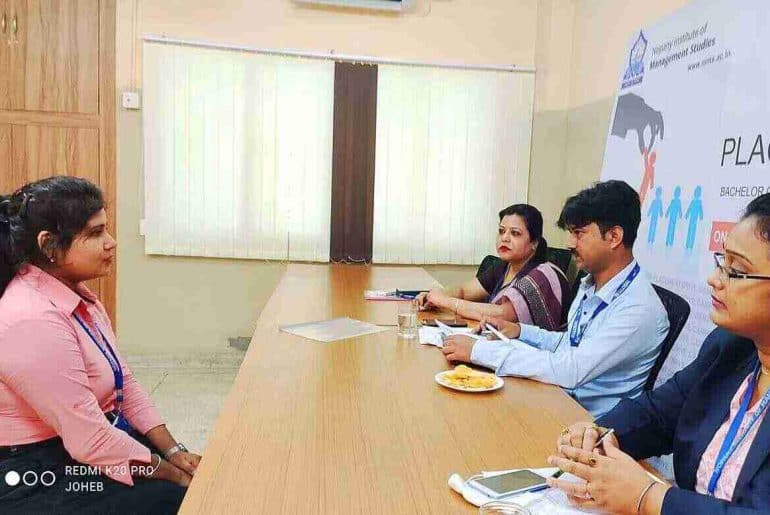TW// Harassment
You must have heard lately about serious cases of harassment in a few DU societies. College officials took action by banning members and even societies. While DU takes pride in providing a ragging-free campus or in taking swift, decisive measures to stop ragging, what often goes unnoticed is the casual harassment perpetrated in the name of “fun” that has turned into a “trend” among college societies.
The dancing society at Sri Aurobindo College was recently banned after some juniors complained about alleged physical and verbal harassment by the society’s president and ex-president. A similar incident occurred at the FilmSoc of Sri Venkateswara College. The college administration implemented rigorous measures in response; these incidents called the campus’s safety into doubt. While the Vice-Chancellor proudly assured the newly admitted batch of a ragging-free campus, what frequently goes unnoticed is the casual harassment that occurs under the pretence of “fun,” especially during society recruitments.
DU takes pride in providing a ragging-free campus and strict disciplinary action against perpetrators. However, one of the most significant gaps in this “ragging-free campus” is how individuals perceive or understand “ragging.” Most people consider ragging to be a serious form of harassment, but what people need to recognise is the major problem of casual harassment, which is frequently carried out under the guise of “fun” and is becoming a trend in DU societies, particularly corporate societies.
One of the worst examples of this may be found during recruiting interviews for college societies. Most of these societies hire new members following a series of stages of selection and sorting that include form completion, tasks, and interviews. All of these things are largely carried out by core members of these societies. Interviews are an important phase in the recruitment process. These interviews serve as a breeding ground for such harassment.
I was asked to propose a flower vase during the interview.
-A first-year student at Kirori Mal College
Freshers are asked to dance, sing, propose to one another, to a senior, or to any random object during interviews by seniors. Freshers are required to perform this while being secretly recorded. The majority of these “tasks” have little to do with the skills necessary to be part of such societies. This is a recent trend that has emerged in college societies, particularly in corporate societies, where seniors engage in such behaviours intentionally or unintentionally. The majority of those involved in these activities believe it’s “mazak” (joke) and should not be taken seriously. They advise that juniors see this as a joke because it is “a way of bonding.”
My friend, who is a core member of a society, showed me videos of them asking juniors to dance or propose to each other. She was laughing and pointing out how they made juniors do these tasks for interviews while they were being recorded. I asked her if they asked the juniors’ permission before recording. She replied,- ‘arre mazak mai kiya ye sab’. When I explained to her that this was wrong, she understood the mistake she had made.
– A third-year student
What they fail to understand is that this isn’t something that everyone is comfortable with. For juniors, mocking them, filming them, and circulating these videos without their permission can be traumatising. This type of ignorance comes with a certain level of privilege. Many DU students come from small towns and villages. It is not an easy road to DU, especially for female students. Most of these students lack the precise skill set that college societies want, but they join to learn and gain experience. Mocking and filming them could drive out these students from such settings, causing serious problems, particularly for female students.
Because of safety concerns, most parents from smaller towns and villages do not send their daughters to DU, and discovering videos of their daughter being posted on random groups might result in them being refused access to offline campuses. For these reasons, these students are compelled to remain silent and tolerate the humiliation.
Not only that, but in certain college societies, especially film societies, “romantic or sexual relationships” are used as a deciding factor for position. Since the old core members determine the new core members in most societies, a member’s romantic or sexual contact with old core members determines whether or not they will be elevated to core positions.
All of these events or incidents are hidden from administration since most individuals do not consider them to be problematic. As a result of the seniors’ lack of understanding and awareness, college societies are becoming increasingly toxic and unsafe. These aspects also contribute to the segregation of students, with only “privileged” students dominating the majority of these areas. While awareness is crucial among seniors, it is also the responsibility of administration to look into safety issues in societies and educate juniors about these issues during orientation.
Read Also: Unveiling the Culture of Toxicity in SVC’s FilmSoc
Featured Image Credits: Nopany Institute of Management Studies
Dhruv Bhati
[email protected]





Comments are closed.